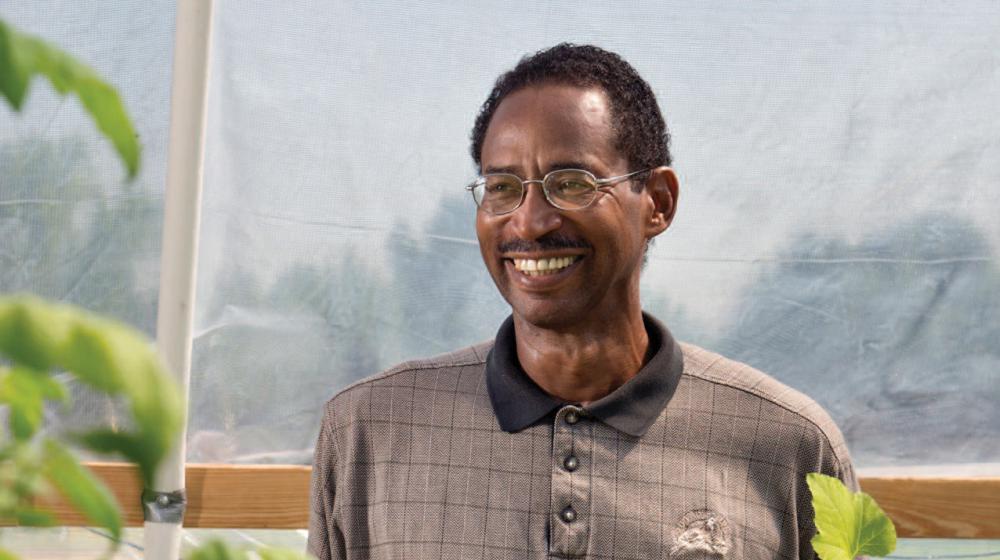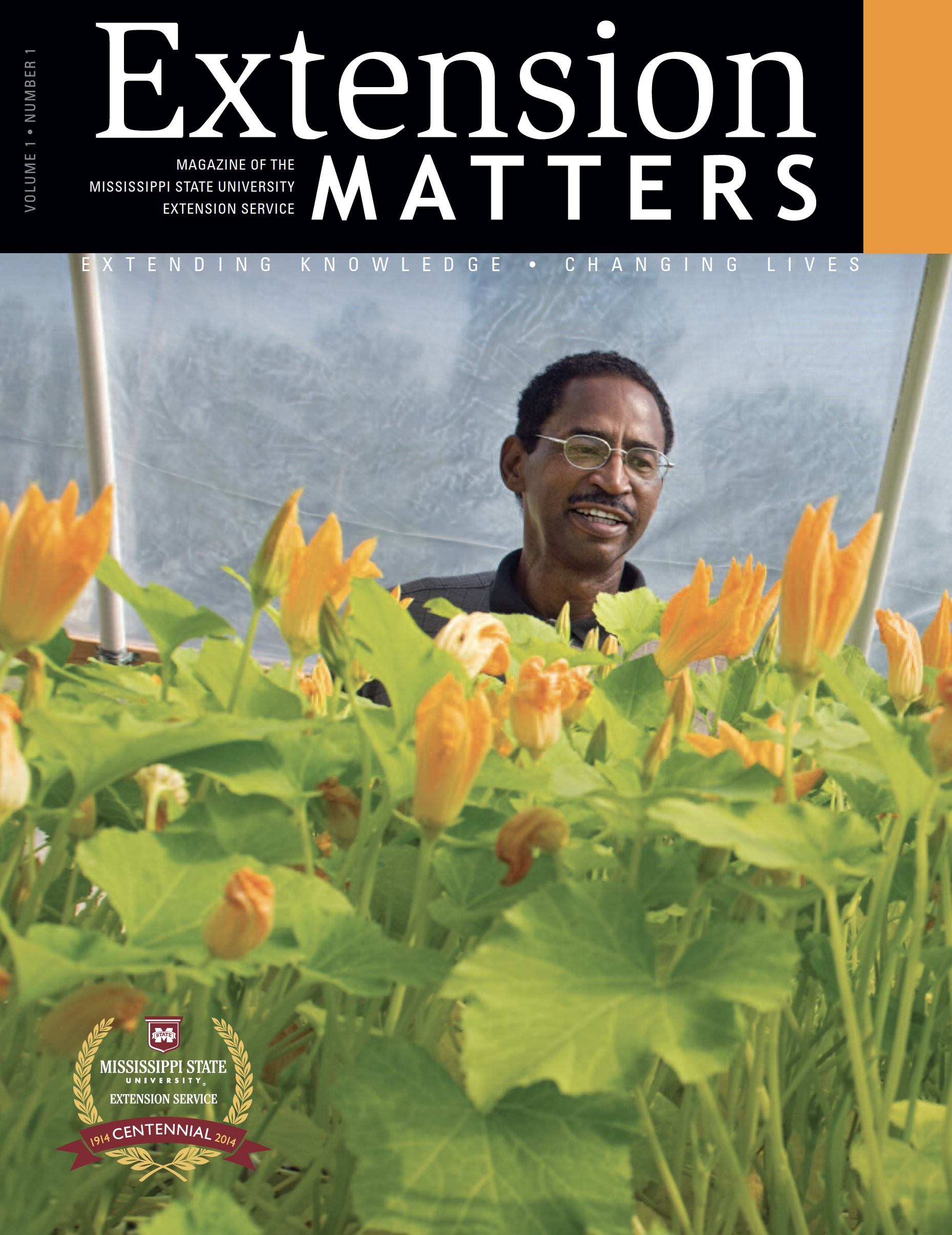Extension Service helps demonstrate sustainable ag

Keith Benson, director of the Alliance for Sustainable Agricultural Production
One of the best ways to learn a new skill is to watch someone else doing it, a concept Keith Benson uses to teach sustainable agriculture in Holmes County.
Benson is director of the Alliance for Sustainable Agricultural Production in Goodman. The nonprofit organization operates a demonstration farm to display these practices for farmers.
“Our goal is to help people increase production and grow healthier food,” Benson said. “We try to encourage farmers to grow more sustainably.”
Started in 2011, the alliance has three main purposes: to make a real investment in skill and knowledge development, to mobilize growers for specialized markets, and to expand community gardening opportunities.
“The alliance was started by farmers in Holmes County who wanted to grow more sustainably and improve the quality of life in their community,” Benson said. “Like many communities throughout Mississippi, Holmes County has a history of declining population, high unemployment, high poverty, and limited economic development.
“Despite these challenges, many of these poor, rural, underserved counties are blessed with rich soil, a long tradition of farming, and significant land ownership by historically disadvantaged groups,” he said. “To take advantage of these opportunities, the alliance and its partners are working to implement strategies designed to improve farm profitability, expand market opportunities, and increase consumer access to healthy food.”
To meet the first goal, the alliance coordinates monthly training on needed topics and arranges demonstrations on the production farm on the third Friday of each month.
“We have black, white, young, and older participants. It’s a great thing to see people coming out and learning,” he said.
“Our topics are different each month based on what farmers and gardeners need to be dealing with at that time,” Benson continued. “In March, we focused on high-tunnel production, seed starting, plastic mulch, and irrigation demonstrations. Before that, we looked at the Farm to School program that tries to allow local farmers to sell their produce to the local schools.”
Benson relies on a variety of partners to provide the expertise for these ventures.
“Probably our biggest partner is the Mississippi State University Extension Service,” Benson said.
Betsy Padgett, Holmes County Extension coordinator, has worked with Benson to link him to information and expertise from the MSU Extension Service. She said agronomist Bill Evans and vegetable specialist Rick Snyder have been regular participants in these efforts.
“I have helped him reach out to the Extension state specialists,” Padgett said. “The people we have in place across the state have really come to bat for him and filled the training needs that he’s trying to address.
“Keith is trying to use this demonstration farm to help farmers stay on task by giving them timely information ahead of when they need it,” she said. “Extension has been able to supply the expertise to train the farmers he brings in.”
The alliance’s second priority calls for supporting these farmers with an aggressive marketing strategy, ensuring that reliable markets and buyers are in place. This strategy includes on-farm sales, roadside stands, and partnerships with specialty food stores, grocery stores, restaurants, and farmers markets.
The third goal is that everyone, regardless of income, should have access to healthy, high-quality, safe, and affordable food.
“In Mississippi and around the country, a new cadre of farmers is emerging to address issues of sustainability,” Benson said. “They are trying to build farming systems that are environmentally sound, economically viable, and socially responsible, and thus sustainable.”
The demonstration farm uses four acres of a 50-acre tract, and there are plans to plant an additional acre this year in a muscadine grape orchard. It features two high tunnels that extend the growing season, and a third is planned.
This spring, the farm started bell peppers and tomatoes from seed. Typical annual production includes tomatoes, peppers, greens, melons, and cucumbers. The goal is to expand each year so the farm can be a training ground for area farmers working with these same crops.
He said the group is dedicated to improving the quality of life for poor, rural, and underserved communities, with a special emphasis on at-risk or vulnerable populations.
“We accomplish this mission by helping people to grow, process, market, and distribute high-value, sustainably grown crops, such as specialty vegetables, fruits, herbs, spices, and flowers,” Benson said. These efforts are already paying off.
“There is growing interest in this type of farming in Mississippi,” Benson said. “We’re seeing that more people are willing to buy local and pay more for sustainably, organically grown food. Farmers are starting to produce more goods to meet this demand.
“We are committed to helping local farmers and consumers make the most of the opportunities presented by this rapidly growing sector,” Benson said.

